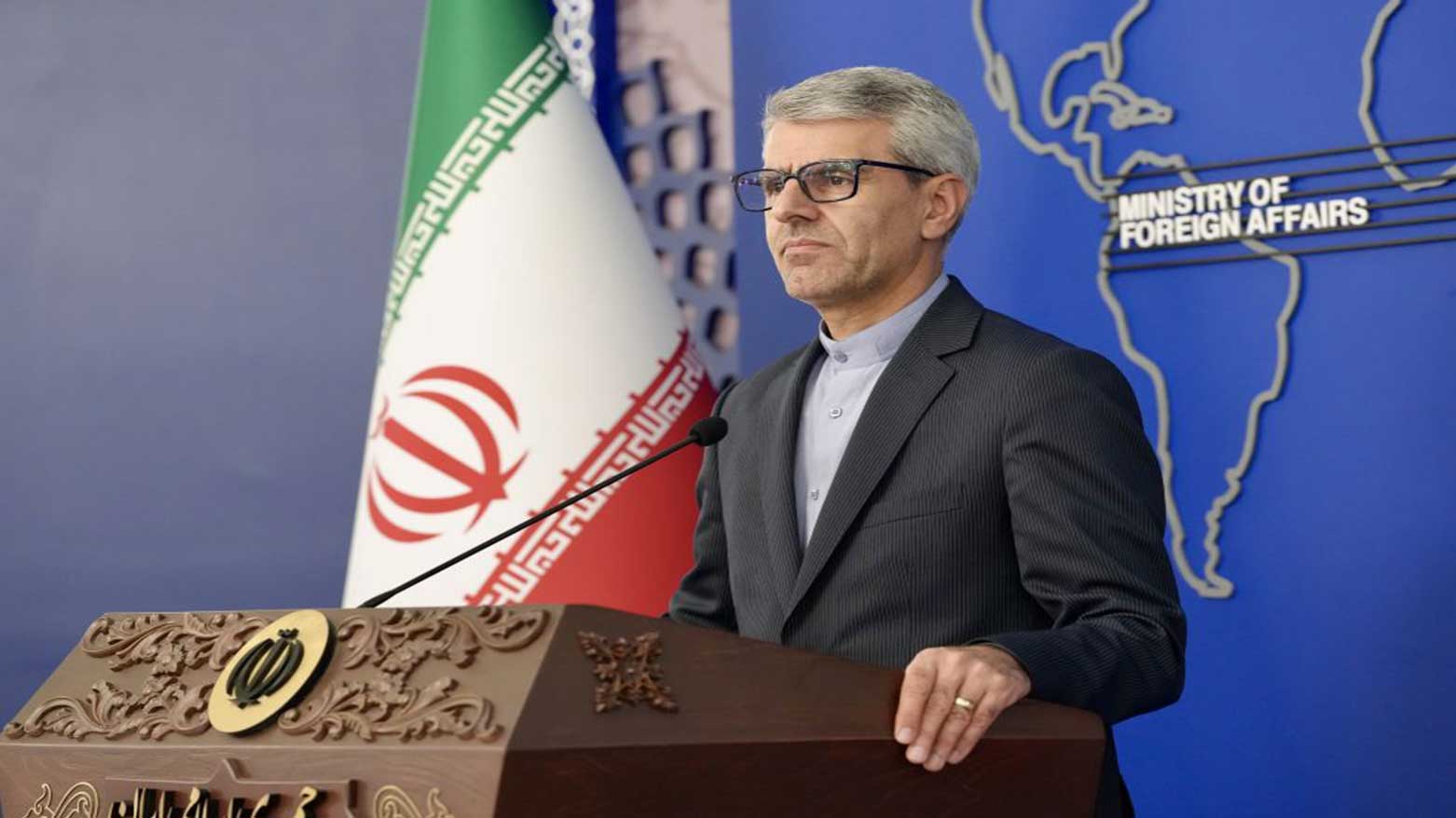Iran Accuses Israel of Undermining Nuclear Talks with U.S.
“A kind of coalition is forming... to undermine and disrupt the diplomatic process,” Baqaei said. “Israel is behind this effort,” he added, pointing also to "warmongering currents" in the United States and figures from across the political spectrum.

ERBIL (Kurdistan24) — Iran on Monday accused Israel of leading efforts to derail ongoing diplomatic talks with the United States over Tehran’s nuclear program, warning that a “coalition” of hostile actors is working to sabotage the negotiation process.
“A kind of coalition is forming... to undermine and disrupt the diplomatic process,” Iranian foreign ministry spokesman Esmail Baqaei said at a press conference in Tehran. “Israel is behind this effort,” he added, pointing also to "warmongering currents" in the United States and figures from across the political spectrum.
The remarks come amid heightened tensions and fragile diplomatic efforts aimed at reviving negotiations on Iran’s nuclear activities — an issue that has long strained its relations with the West.
According to a New York Times report last week, U.S. President Donald Trump privately advised Israeli officials against launching an immediate strike on Iran’s nuclear facilities, amid concerns it could provoke a broader conflict.
Despite U.S. reservations, Israeli Prime Minister Benjamin Netanyahu has continued to assert that Israel “will never allow Iran to acquire nuclear weapons,” maintaining a hardline stance that aligns with longstanding concerns in Tel Aviv.
While Western powers and Israel accuse Iran of seeking to build a nuclear arsenal, Tehran insists its program is purely for peaceful, civilian purposes. “These accusations are politically motivated,” Baqaei said Monday, reiterating Iran’s denial of pursuing nuclear weapons.
The current diplomatic track follows years of setbacks. In 2018, then-President Trump unilaterally withdrew the U.S. from the 2015 Joint Comprehensive Plan of Action (JCPOA) — an agreement under which Iran agreed to limit its nuclear activities in exchange for sanctions relief. The withdrawal dealt a major blow to the deal and sparked a cycle of renewed tensions and escalatory moves.
By 2019, Iran began exceeding the JCPOA’s limits, most notably by enriching uranium beyond the 3.67 percent cap set by the accord. According to the International Atomic Energy Agency (IAEA), Iran has since enriched uranium to 60 percent purity — just below the 90 percent threshold considered weapons-grade — and continues to stockpile fissile material.
Despite deep mistrust between Tehran and Washington, the two sides are expected to meet for a third round of direct talks mediated by Oman. The outcome of the negotiations could have major implications for regional stability and the future of non-proliferation efforts in the Middle East.
For now, Iran remains wary of external interference. “Some actors are trying to escalate tensions and push the region toward confrontation,” Baqaei warned, without naming specific U.S. individuals or factions.
As diplomacy hangs in the balance, all eyes remain on the next round of talks — and whether they can bring the decades-old nuclear standoff any closer to resolution.